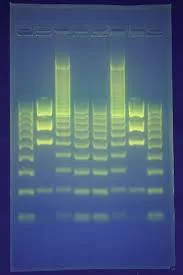
In a groundbreaking achievement, a team of doctors in the US has successfully administered a pioneering gene therapy to combat Rett syndrome—a rare genetic brain disorder—in two young girls. This marks a historic milestone as these girls are the first worldwide to undergo this promising treatment, part of the initial Phase I/II trial of the innovative gene therapy NGN-401, developed by Neurogene, a US-based company.
Rett syndrome, a rare neurodevelopmental disorder primarily affecting girls, typically manifests with a period of normal development until 6-18 months of age. Subsequently, affected children start experiencing a gradual decline in acquired motor and verbal skills along with the emergence of constant hand-wringing behavior.
Over time, the condition leads to severe impairments that profoundly impact various facets of daily life, including speech, mobility, eating, and breathing.
The groundbreaking discovery in 1999 by Dr. Huda Zoghbi’s team at Baylor College of Medicine unveiled that mutations in the methyl cytosine binding protein 2 (MECP2) gene are responsible for causing Rett syndrome. Fast forward 25 years, Baylor College and Texas Children’s Hospital have emerged as the pioneer trial site for this gene therapy. Presently, the only available treatment for Rett syndrome does not address the fundamental cause of the disease, which lies in the loss or alteration of MECP2.
This circumstance underscores the urgent need for more effective treatments to combat this debilitating condition.
Bernhard Suter, principal investigator of the Phase I/II clinical trial and Associate Professor of Pediatrics and Neurology at Baylor College, highlighted, “While gene therapy has shown its efficacy in treating several devastating genetic conditions, its application in complex neurological disorders like Rett syndrome has been limited due to the inconsistent expression of the transgene, particularly because overexpression of MECP2 transgene can be harmful.”
To overcome these challenges, NGN-401 was meticulously designed to maximize therapeutic benefits while preventing adverse effects from transgene overexpression.
Administered as a one-time treatment through the intracerebroventricular (ICV) route, NGN-401 demonstrates efficient delivery of the therapeutic MECP2 gene to crucial brain areas associated with Rett syndrome.
Initial findings from the first two treated patients indicate no significant side effects from NGN-401 to date.
Rachel McMinn, Neurogene’s founder and CEO, expressed optimism, stating, “The initial safety profile observed in our initial pediatric patients is promising. We eagerly await further data from a larger patient pool to ascertain NGN-401’s potential as a leading therapy for this condition.”











